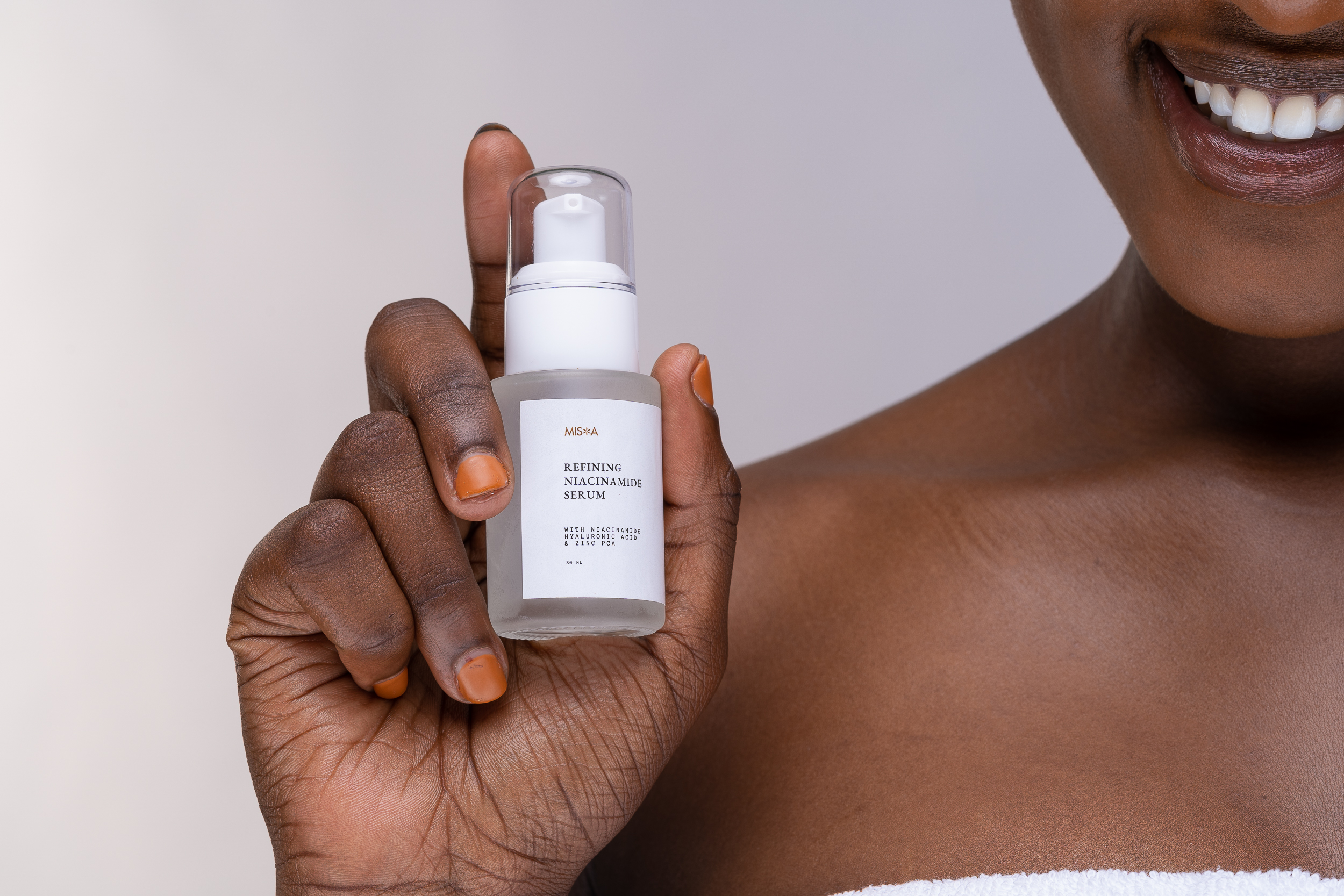Your cart is currently empty!

Skincare serums have become increasingly popular in recent years, and for good reason. These concentrated formulas are designed to target specific skin concerns and provide a potent dose of active ingredients to the skin. In this blog, we’ll be discussing a guide to using skincare serums ; vitamin C serum, hyaluronic acid serum, and niacinamide serum – to get the most out of your skincare routine.
Vitamin C Serum
Vitamin C is a powerful antioxidant that can help brighten the skin, reduce the appearance of fine lines and wrinkles, and protect against environmental stressors like pollution and UV rays. This type of serum is best suited for those who are concerned with hyperpigmentation, uneven skin tone, and fine lines. Vitamin C serum is also beneficial for those who live in areas with high levels of pollution or who spend a lot of time outdoors, as it can help protect the skin from environmental damage.
To use a vitamin C serum, start by cleansing your skin and patting it dry. Then, apply a few drops of the serum to your face, focusing on any areas that you want to brighten or reduce the appearance of fine lines. Be sure to follow up with a moisturizer and sunscreen, as vitamin C can make the skin more sensitive to the sun.
When choosing a vitamin C serum, look for a formula with a concentration of at least 10%, as this will provide the most benefit for your skin. You may also want to opt for a serum with additional antioxidants, like vitamin E or ferulic acid, to boost the effectiveness of the vitamin C.
-
 Nairobi Glow Serum – Vitamin CKSh 1,350.00
Nairobi Glow Serum – Vitamin CKSh 1,350.00
Hyaluronic Acid Serum
Hyaluronic acid is a humectant that can help hydrate the skin and improve its texture and appearance. To use a hyaluronic acid serum, start by cleansing your skin and patting it dry. Then, apply a few drops of the serum to your face and neck, focusing on any areas that feel dry or tight. Follow up with a moisturizer to lock in the hydration.
Hyaluronic acid serum is an excellent choice for those with dry or dehydrated skin. This type of serum can help improve hydration and restore moisture to the skin. It’s also beneficial for those with sensitive skin, as it is typically non-irritating.
To use hyaluronic acid serum, start by cleansing and toning your skin. Apply a few drops of the serum to your face and neck, gently patting it into the skin until fully absorbed. Follow up with your favorite moisturizer to seal in the hydration.
-
 Mara Moisture BoostKSh 1,050.00
Mara Moisture BoostKSh 1,050.00
Niacinamide Serum
Niacinamide is a form of vitamin B3 that can help reduce the appearance of pores, brighten the skin, and improve its texture and tone. To use a niacinamide serum, start by cleansing your skin and patting it dry. Then, apply a few drops of the serum to your face and neck, focusing on any areas with enlarged pores or uneven skin tone. Follow up with a moisturizer and sunscreen.
Niacinamide serum is a great option for those with oily or acne-prone skin. This type of serum can help reduce inflammation and redness while also improving the overall texture and appearance of the skin.
When choosing a niacinamide serum, look for a formula with a concentration of at least 5%, as this will provide the most benefit for your skin. You may also want to opt for a serum with additional soothing ingredients, like chamomile or green tea, to calm any irritation or redness.
-
 Savanna Smooth – Niacinamide serumKSh 1,350.00
Savanna Smooth – Niacinamide serumKSh 1,350.00
In conclusion, adding a serum to your skincare routine can provide a potent dose of active ingredients to help target specific skin concerns. When using a serum, it’s important to start with clean, dry skin and follow up with a moisturizer and sunscreen to protect and nourish your skin. Whether you’re looking to brighten, hydrate, or improve your skin’s texture and tone, a vitamin C serum, hyaluronic acid serum, or niacinamide serum can be a great addition to your skincare routine.



Leave a Reply